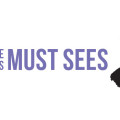Things fall apart. Markets fragment. The critic’s traditional “top 10” list means less in this era of diversified audiences. Audiences are multiverses, each with their own canon. The Matrix Resurrections demonstrates how movies cause divisions—where would QAnon have been without that red pill, blue pill game?
Given the firehose stream of content, it’s harder to find stories with mass appeal. Squid Game was not for me, but its great success is more proof of the primacy of Korean soap operas. Instead, I’m starting up Lupin, a French series about the new adventures of a master-thief who was created almost 120 years ago.
So rather than 2021’s best movies, we celebrate its most prolific trends—across streaming platforms and channels, films and series, fantasies and documentaries.
Small Pleasures
Awards season should honor microdose moments: Willem Dafoe wins a trophy, maybe named after Jean Valjean, for best scenes of stealing food: pocketing donuts in Spider-Man: Far From Home and forking steak out of Bradley Cooper’s plate in the criminally unseen Nightmare Alley. Benedict Cumberbatch was, in 2021, a bastard with Montana ranch dressing (Power of the Dog), a sorcerer supreme (Spider-Man: Far From Home), and pussycat wrangler Louis Wain (The Electrical Life of Louis Wain). Cumberbatch earns a sort of prize for choosing odd roles while always being the same Englishman: on the nose and looking down it at the same time.
Sweeter Music
The music documentaries of the year provided more escape, including the Beatles’ swan song Get Back; the search for Lou Reed in The Velvet Underground; and the immensely loveable The Sparks Brothers, about how Ron and Russell Mael kept the eclectic spirit going through corporate times.
The series 1971: The Year that Music Changed Everything took a more incisive look at the times than its Behind the Music-like title suggests. If you want another show like Summer of Soul, see, free on YouTube, the sweet soul and gospel showcase Memphis ’69: The 1969 Memphis Country Blues Festival.
Edgier Comedy
Dave Chappelle is on Netflix, complaining about freedom of speech. Meanwhile, the best comedians are out there practicing it. HBO’s Curb Your Enthusiasm skews old (and bald)—is that why we’re not seeing aggrieved essays about how Larry David needs to check himself? This dreadful man continues to stomp through the social minefield. In this final season, Larry is forcibly mated with Tracey Ullman, playing a ghastly Santa Monica councilperson. She’s obnoxious even in her sleep, slurping on her CPAP like a jerk trying to get the final gulp of milkshake with a straw. In our hypersensitive times, Larry David is the last farceur. And one of the best of them all.
Earlier this year Kim’s Convenience wrapped up, providing a springboard for its studly (and underpaid) star Simu Liu to greener paychecks as Shang-Chi. (Good movie, by the way.) Like Schitt’s Creek before it, Kim’s Convenience portrays a Canadian utopia, a snow-free, non-violent land green as a hundred Irelands. For the forcibly shut-in American, it was escape…just like Schitt’s Creek, a magic place where you can be flamboyantly ambisexual and not get shot by bumpkins.
Familiarity That Breeds Content
With all these channels and platforms to populate, many familiar stories have returned. Of all the reboots—including Dexter: New Blood, the Queen Latifah-starring Equalizer, Eddie Murphy in Coming 2 America, and Sarah Jessica Parker in And Just Like That…—it’s more startling to see how The Conners (Hulu) keeps going, with unmissable actors like John Goodman, Laurie Metcalf, and Katey Sagal. This Roseanne show without Roseanne is a wisecracking, sometimes-speculative sometimes-accurate look at how the working class live.
More Marvel
With all the chatter of MCU fatigue, the Marvel streaming series are zeitgeisty, with far more female directors working than you’d commonly see in the movies. Take the puzzle of WandaVision, a fast-moving parody of three decades of television. The whirl leaves star Elizabeth Olsen identityless, baffled by new characters and sudden children.
Loki matches an unpredictable demigod with a grim Calvinist timeline that has already determined what happens after the end of the world. Tom Hiddleston excelled in a story of how a trickster figure longs to be trustworthy.
Less Predictability
Streaming services took gambles the studios wouldn’t—gambles like Amazon’s The Underground Railroad, and Netflix’s aesthetically perfect if blood-freezing Passing. Here we could find commemoration of the injustice done to Billie Holiday by the narcs (Billie Holiday vs the United States) or to Black Panther Fred Hampton by the FBI, in Shaka King’s Judas and the Black Messiah.
FX’s first-rate Reservation Dogs turned out not to be as slavishly Tarantinoid as the title indicated. Instead was quite the piercing human comedy of love, death and mysticism on the Oklahoma rez. Similarly the blue-filtered, cold-country look of HBOMax’s Mare of Easttown and Hulu’s Dopesick took on the malaise of rag-and-bone America.
Michael Keaton’s excellence aside, Dopesick can be aggravating. Enough with the timestamps—pick a damn date already! But with alternative-universe being the flavor of the year, I hope we get multiverse Richard Sacklers: Michael Stuhlbarg vs Richard Kind, who played the zillionaire candyman on John Oliver’s Last Week Tonight. Kind, our superb national nebbish, was terrific. But I’m #teamStuhlbarg; on Dopesick, Stuhlbarg was chilling as a wealthy anhedonic trying to make the USA as numb as he is. Who needs Oxycontin when you have 24-hour streaming?

 Axe This Year
Axe This Year  The Year in Weed
The Year in Weed 


